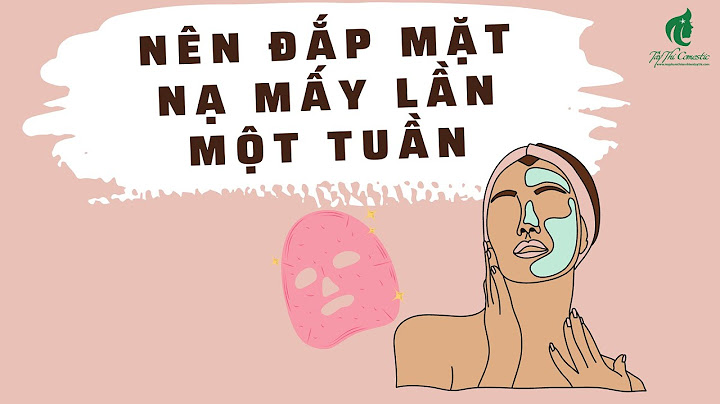Databases such as the ones below can be a great source for locating book reviews. Search by topic or subject and refine the results by applying the Book Review limiter. Show
Web of Science This link opens in a new window Provides access to multiple science and social science databases: Arts & Humanities Citation Index (1975 - present), Social Sciences Citation Index (1956 - present), Science Citation Index (1900 - present), Conference Proceedings Citation Index-Science (1990 - present), and Conference Proceedings Citation Index-Social Science & Humanities (1990 - present). Also includes Emerging Sources Citation Index (ESCI). The Book Review limited is found under Document Types. University of Chicago Press for The Department of Sociology at The University of Chicago (United States) Bimonthly Impact factor 3.232 (2019)Standard abbreviations ISO 4Am. J. Sociol.Indexing CODENAJSOARISSN0002-9602 (print) 1537-5390 (web) LCCN05031884JSTOR00029602OCLC no.42017129Links
The American Journal of Sociology is a peer-reviewed bi-monthly academic journal that publishes original research and book reviews in the field of sociology and related social sciences. It was founded in 1895 as the first journal in its discipline. The current editor is John Levi Martin. For its entire history, the journal has been housed at the University of Chicago and published by the University of Chicago Press. Past editors[edit]Past editors-in-chief of the journal have been:
From 1926 to 1933, the journal was co-edited by a number of different members of the University of Chicago faculty including Ellsworth Faris, Robert E. Park, Ernest Burgess, Fay-Cooper Cole, Marion Talbot, Frederick Starr, Edward Sapir, Louis Wirth, Eyler Simpson, Edward Webster, Edwin Sutherland, William Ogburn, Herbert Blumer, and Robert Redfield. Abstracting and indexing[edit]According to the Journal Citation Reports, its 2019 impact factor was 3.232, ranking it 8th out of 150 journals in the category "Sociology". Roger V. Gould Prize[edit]In 2002, the American Journal of Sociology created the Roger V. Gould prize in memory of its former editor. The $1,000 prize is awarded annually at the American Sociological Association annual meeting to the paper from the previous volume of the journal that most "clearly embodies Roger's ideals as a sociologist: clarity, rigor, and scientific ambition combined with imagination on the one hand and a sure sense of empirical interest, importance, and accuracy on the other." Winners include Peter Bearman, John Levi Martin, Michael J. Rosenfeld, Elizabeth E. Bruch, Robert D. Mare, Shelley Correll, and Roberto Garvía. Racial integration has been a tenet of educational equity for over fifty years. Despite this, U.S. higher education presents staggering rates of segregation. Strikingly, there is little scholarship to answer the question of how integrated colleges segregated? I interrogate the process of segregation over a fifty-year period through a comparative historical analysis of the broader field of higher education and case studies of three nineteenth-century colleges. Through analysis of independently collected archival materials, I show that local-level organization of racial contact fails to account for the success or failure of racial integration in schools. Instead, I show that the interaction between colleges—and the emergence of a competitive field of higher education—undermined even successfully integrated campuses. Mesolevel practices are important for revealing how organizational actors implement rationalized cultural ideas as well as how local-level ideas are negotiated in a situated field. The growth of intercollegiate college competition differentiated not only particular types of education but also consecrated groups of people. Further, this reveals the production of cultural meanings around race as a differentiation strategy in response to interorganizational competition. How do racial meanings structure the institution of higher education and the organizations and networks it encompasses? This chapter develops a theory of racial activation to usefully link conceptualizations of race and organizations. This theory examines how racial meanings shape organizational fields, forms or types of organizations, and the strategic use of racial meanings by actors in organizations to create a more robust understanding of the processes by which organizations are themselves made racialized. Predominant scholarship on race can largely be characterized as theorizing the mechanisms by which race is constructed or uncovering the patterns and consequences of inequality along racial lines. Much existing research hovers above at a macro level where national, state, and global powers are understood to impose racial categories, symbols, meanings, and rules onto daily life while higher education has largely been studied as a site where we see the effects of broader social disparities play out. This chapter draws on insights from inhabited institutionalism to develop a theory of racial activation that usefully links conceptualizations of race and organizations to provide an intersectional and interactional approach to the study of fields. While historians have documented the criminalization process of Blacks during the Jim Crow and Progressive Eras, few scholars include in their analyses the contemporaneous change in attitudes toward poor Whites. This study examines boundary processes and organizational activism in decriminalizing a particularly virulent and hypervisible series of violent events, the Appalachian feuds of the late 19th century. How are criminal acts committed by Whites rendered less criminal? Not only are Whites less likely to be brought before legal adjudication for criminal behavior, even when there is detailed evidence of their crimes, criminal acts can be made legitimate using redemption narratives that depict White violence as justifiable and even, as in the case here, indicative of a deeper moral worth. The decriminalization of Whites hinges on organized efforts by empowered actors to maintain and police racial boundaries. This article draws on independently collected archival materials including organizational records and financial reports, Board of Trustee records, interorganizational and private correspondence, and 727 newspaper articles. In this thesis I explore the place of the actualized utopian American alternative community of higher learning within a philosophy of human culture. I carry out such a study in order to articulate a unifying description of movement; to find the “target” that orients the activity of actualized utopia, as opposed to a classificatory rule to define a mechanically determined utopian-object. Although these communities have varied in practice since the first generation of them were created in the mid-nineteenth century, I argue that they have played, and continue to play, a particular role in America. They imagine what a world beyond their own could look like; and through their resistance to the perceived status quo (on which they rely for their identity), they prefigure a world that could be. Although this world never comes fully into existence, the actualization (i.e., the process of becoming a dynamic symbolic product of culture) of these communities illuminates new possibilities for human life in the larger culture. While these actualized utopian communities often live long beyond their pre-figurative years, paradoxically their practices largely stay the same. A resistance to the perceived modern culture, and a vision of a world that offers more opportunities for life and dignity, has made these communities places that cultivate persons with a sense of agency. These communities create a sense of active consciousness; they create people who believe the world is changeable. An open humanistic and personalistic theodicy is what distinguishes these schools from a cult of domination, or an organization bent on a utopia that depersonalizes and dehumanizes the opportunities of others in service of a singular vision. What type of journal is the American Journal of Sociology?The American Journal of Sociology is a peer-reviewed bi-monthly academic journal that publishes original research and book reviews in the field of sociology and related social sciences. It was founded in 1895 as the first journal in its discipline. What is the most prestigious sociology journal?Top SOCIOLOGY Journals. Annual Review of Sociology. American Sociological Review.. Journal of Consumer Culture. Social Networks.. Work and Occupations. American Journal of Sociology.. Cornell Hospitality Quarterly. Gender & Society.. Rural Sociology.. Is The American Sociologist peerThe American Sociologist is a quarterly peer-reviewed academic journal covering sociology with special emphasis on topics of broad concern to the profession and the discipline. How much does it cost to publish in the American Journal of Sociology?All new submissions to AJS require a submission fee of $30 whether or not they are sent out for review. |





















